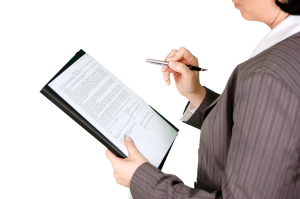Read Your Professional Liability Policy
With so much going on in our daily work lives it seems challenging to have the time to set aside to read your policy. However, it is extremely important to understand the policy so that if you do have a claim you know what your policy covers.
The policy declarations page is the first few pages of the policy. This includes information such as your firms name, address, policy effective dates, limits of liability, deductible, deductible type, premium, retroactive date and endorsements list/titles. The dec page are the ‘highlights’ of the policy and provides information about the limits and deductible.
The first part of the policy is typically the insuring agreement. This is the agreement of the insurance company of what will be covered in the event of a claim.
The next section is the supplementary payments, such as crisis management expenses, loss prevention assistance and other types of reimbursements.
Definitions are the following section of the policy. This defines the policy terms such as the meaning of a claim or circumstance, damages, who is an insured, mediation, professional services and retroactive date. This is the part of the policy that highlights words such as professional services, which are used throughout the policy.
The following sections are the exclusions. The includes may include items such as products liability, warranties or guarantees, employment liability, ownership interest, insured vs. insured, and contractual liability.
The last sections are the conditions. This includes details about the limits of liability, deductible, settlement, notice of cancellation or non renewal, extended reporting period, acquisitions and mergers and subrogation. This section is the biggest part of the policy that details what is included in the policy.
Additionally at the end of the policy there will be endorsements. The endorsements may be additional exclusions, deductible options or aggregate deductibles.
The bottom line is read your policy so you have a full understanding of what would happen if your firm did have a claim. If you do have questions please call or email your Professional Underwriters agent.
